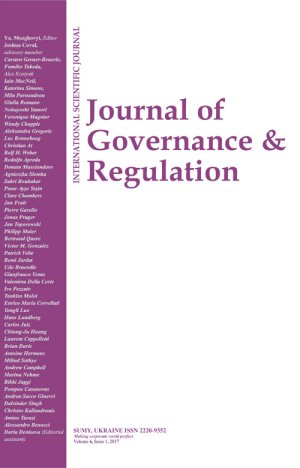
HOW EURO SHRINKS DEMOCRACY: INSIGHTS FROM THE GREEK CRISIS
Download This ArticleAbstract
The adoption of a single currency in Europe is a pure political project. What we have learned from Greek crisis is that being in the Eurozone means that creditors can destroy a national economy and seize public assets if the government steps out of line. To keep the European project alive, we here call for a fundamental reform on sovereign debt: switching from a goal to which policy is constrained, back to a tool to serve policy aims. In a distressed country, lenders has the power to forces the borrower to accept and to adopt restrictive spending policies that defend their interest at the expense of citizen’s ones. Eventually, this leads inevitably to the loss of autonomy in borrower’s decisions on fiscal policy, spending policy, public properties. If the cause for this degenerative process is the privilege on sovereign debt, then we need to find a new framework that reclassifies the public debt as functional to human development rather than individual profits. A country shall not be allowed to repay a debt that goes beyond its repayment capacity. The maximum payback capacity shall be settled before the credit is granted as a fraction of its primary balance. As such, the amount of primary balance not pledged to the repayment of the debt shall be always available to the government to undertake investments, social or security expenses and to face unexpected events. If this rule were implemented, the capital market would be automatically regulated: the debt that exceeds that threshold would be automatically written-off.
Keywords: Eurozone Crisis, National Debt, Democracy, Euro Zone, Greece
How to cite this paper: Lanzavecchia, A., Pavarani, E., & Tagliavini, G. (2015). How EURO shrinks democracy: Insights from the Greek crisis. Journal of Governance and Regulation, 4(4-1), 135-146. https://doi.org/10.22495/jgr_v4_i4_c1_p1



















